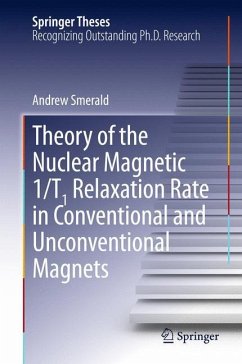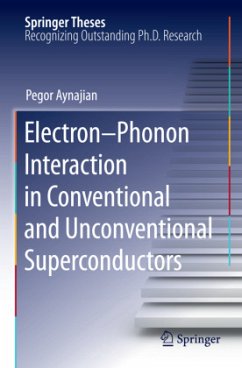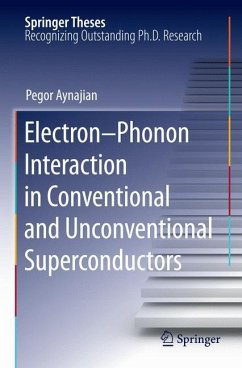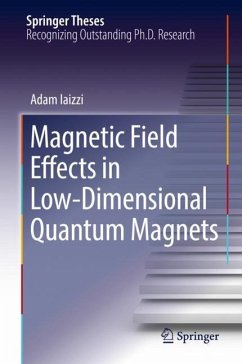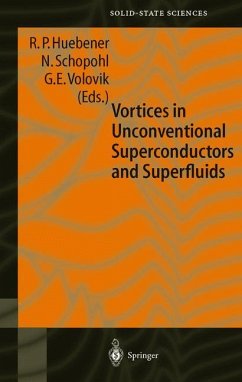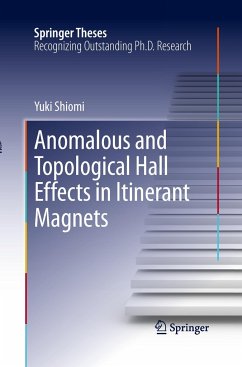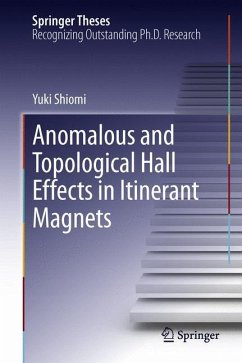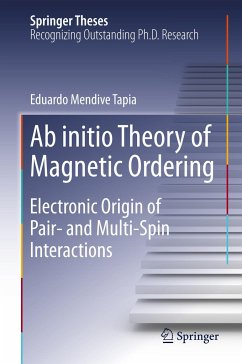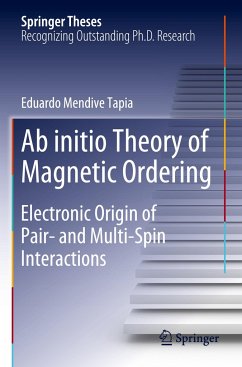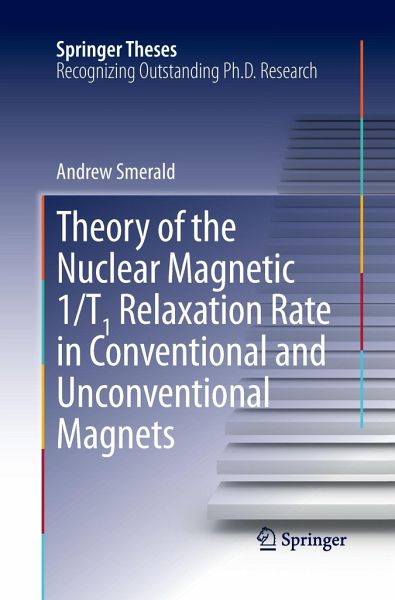
Theory of the Nuclear Magnetic 1/T1 Relaxation Rate in Conventional and Unconventional Magnets
Versandkostenfrei!
Versandfertig in 6-10 Tagen
76,99 €
inkl. MwSt.
Weitere Ausgaben:

PAYBACK Punkte
38 °P sammeln!
One of the best ways to "lift the lid" on what is happening inside a given material is to study it using nuclear magnetic resonance (NMR). Of particular interest are NMR 1/T1 relaxation rates, which measure how fast energy stored in magnetic nuclei is transferred to surrounding electrons.This thesis develops a detailed, quantitative theory of NMR 1/T1 relaxation rates, and shows for the first time how they could be used to measure the speed at which energy travels in a wide range of magnetic materials.This theory is used to make predictions for"Quantum Spin Nematics", an exotic form of quantum...
One of the best ways to "lift the lid" on what is happening inside a given material is to study it using nuclear magnetic resonance (NMR). Of particular interest are NMR 1/T1 relaxation rates, which measure how fast energy stored in magnetic nuclei is transferred to surrounding electrons.
This thesis develops a detailed, quantitative theory of NMR 1/T1 relaxation rates, and shows for the first time how they could be used to measure the speed at which energy travels in a wide range of magnetic materials.
This theory is used to make predictions for"Quantum Spin Nematics", an exotic form of quantum order analogous to a liquid crystal. In order to do so, it is first necessary to unravel how spin nematics transport energy. This thesis proposes a new way to do this, based on the description of quarks in high-energy physics.
Experiments to test the ideas presented are now underway in laboratories across the world.
This thesis develops a detailed, quantitative theory of NMR 1/T1 relaxation rates, and shows for the first time how they could be used to measure the speed at which energy travels in a wide range of magnetic materials.
This theory is used to make predictions for"Quantum Spin Nematics", an exotic form of quantum order analogous to a liquid crystal. In order to do so, it is first necessary to unravel how spin nematics transport energy. This thesis proposes a new way to do this, based on the description of quarks in high-energy physics.
Experiments to test the ideas presented are now underway in laboratories across the world.





